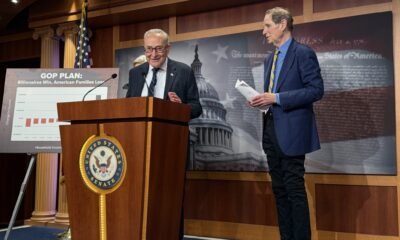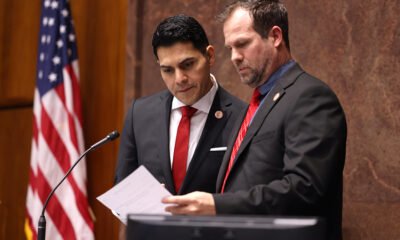affordable housing
U.S. Senate Panel Investigates Federal Influence Behind Affordable Housing Crisis

WASHINGTON — During a recent hearing, Rhode Island House Speaker Joseph Shekarchi outlined the state’s strategies for addressing affordable housing, highlighting its potential as a model for other local and state governments. Shekarchi emphasized a straightforward philosophy: “production, production and more production.”
In conjunction with housing experts, Shekarchi urged the U.S. Senate Budget Committee to adopt a comprehensive government approach to the affordable housing crisis. This includes reforming zoning laws, increasing available land for development, and streamlining the permit process.
Sen. Patty Murray of Washington echoed calls for urgent action, noting her state faces a shortage of 172,000 homes. She inquired how federal support could facilitate proactive measures at the local level. Paul Williams, executive director of the Center for Public Enterprise, suggested the government assist municipalities in reviewing their zoning and permitting processes to eliminate barriers hindering new apartment construction.
Financing remains another significant obstacle. Greta Harris, president and CEO of the Better Housing Coalition, advocated for the expansion of the U.S. Department of Housing and Urban Development’s Low-Income Housing Tax Credit. This initiative incentivizes local organizations to build or refurbish low-income housing. Harris stressed the program’s effectiveness in increasing housing units while preserving existing affordable options.
She proposed Congress also consider expanding federal housing vouchers, emphasizing their vital role for low-income families, the elderly, and veterans. “Wealth building through home ownership and accruing equity is crucial,” Harris stated. “That equity can assist with retirement, education expenses, and business ventures.”
In an exchange with Sen. Sheldon Whitehouse, the committee chairman, Shekarchi detailed some of the positive outcomes from Rhode Island’s housing initiatives. He noted that the state has improved the building permit process and addressed land disputes, ultimately increasing the number of permits issued. Additionally, Rhode Island appointed a housing secretary to further coordinate efforts.
Sen. Mike Braun from Indiana posed a question regarding the division of responsibilities between local government and private enterprises in the housing sector. Harris countered that the market alone fails to serve all community segments equitably, insisting that a multi-layered government approach is essential.
Republican Sen. Chuck Grassley criticized the Biden administration for escalating housing costs and rejected Vice President Kamala Harris’s $25,000 down payment assistance proposal for first-time home buyers. Grassley argued that economists agree such initiatives could exacerbate price inflation in the housing market. Ed Pinto from the American Enterprise Institute reiterated this concern, claiming that any assistance program risks making recipients “price setters,” further driving up costs in their neighborhoods.


















